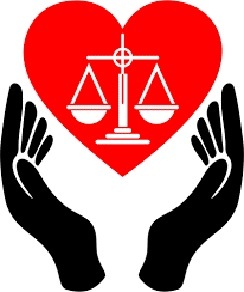In his last book, Dr. Martin Luther King (1968) encouraged us to consider the impact of hate on humanity. He wrote “humanity is waiting for something other than blind imitation of the past. If we want to . . . advance. . . we must begin to turn . . . away from the long and desolate night of violence” (p. 68).
We may find promise in King’s urgent call for us to return to love. As he says, “it will be power infused with love and justice, that will change dark yesterdays into bright tomorrows” (King, 1968, p. 69).
We live in a time where hate is winning. Hate crimes are on the rise in the U.S., with schools and colleges often the sites of those reported (Garibay et. al, 2020). Divisions between the haves and the have-nots are larger than at any time in recorded history (Institute for Policy Studies). Social services are being cut, privatized, and eliminated (Stein & Gregg, 2019) while spending on militarization and other forms of sanctioned state violence is increasing.
Colleges and universities are adopting equity initiatives, but fewer are adopting equity initiatives rooted in justice.
And we still see schools as the great mobilizer? Across the U.S., colleges and universities are adopting equity initiatives, but fewer are adopting equity initiatives rooted in justice. On the one hand, these equity initiatives have the promise to heal the white supremacist, capitalist, and patriarchal (hooks, 1995) concrete that sits at the core of all our institutional legacies. On the other hand, these equity initiatives will likely fall short because they do not center love.
- Love is what our brains need: Research (Center for the Developing Child, 2012) has shown that the brain cannot learn unless we are safe and connected.
- Love is what brings us together: Our relationships, rooted in our inextricable boundedness to one another, brings us together across differences.
- Love is what sustains us: hooks (2001) reminds us that “love can give us strength to go forward in the midst of heartbreak and misery. … When all else has fallen away, love sustains” (p. 17).
- Love is what will get us through the tough conversations: Naming our relationship to oppression’s reproduction can be consuming and terrifying, but love may give us strength to move toward hate’s eradication.
At the college I work at, we started an Equity and Justice Leadership Academy. Faculty, staff, and administrators engaged in more than nine two-hour activities to heighten their analyses of the structures of hate. What emerged from the seminar was a centering of love, which supported the pedagogies, the learning, the curriculum, and the analysis that took place.
In her book All About Love (2001), hooks wrote, “To open our hearts more fully to love’s power and grace we must . . . acknowledge how little we know of love in both theory and practice” (p. xxix). It is my hope that other colleges and universities, whether they are planning equity initiatives and strategies or reviewing their successes, will consider engaging in praxes (theories and actions) of love.
References
Center on the Developing Child (2012). Executive Function (InBrief). Retrieved from www.developingchild.harvard.edu.
Garibay, J. C., Herrera, F. A., Johnston-Guerrero, M. P., & Garcia, G. A. (2020). Campus racial incidents, hate crimes, and white male and female students’ racial attitudes. The Journal of Higher Education, 91(1), 1-31.
Gregg, A., & Stein, J. (2019, April 18). U.S. military spending set to increase for fifth consecutive year, nearing levels during height of Iraq war.
hooks, b. (1996). Killing rage: Ending racism. Journal of Leisure Research, 28(4), 316.
hooks, b. (2001). All about love: New visions. William Morrow
hooks, b. (2001). Salvation: Black people and love. Harper Perennial.
Institute for Policy Studies. (n.d.) Income Inequality. Retrieved from
https://inequality.org/facts/income-inequality/
King Jr, M. L. (2010). Where do we go from here: Chaos or community? (Vol. 2). Beacon Press.
Dr. Wilson's institution was one of five selected for the OCCRL Educational Leaders Equity-Centered Transformation (ELECT) Spark Grants Initiative Program. Learn more.
